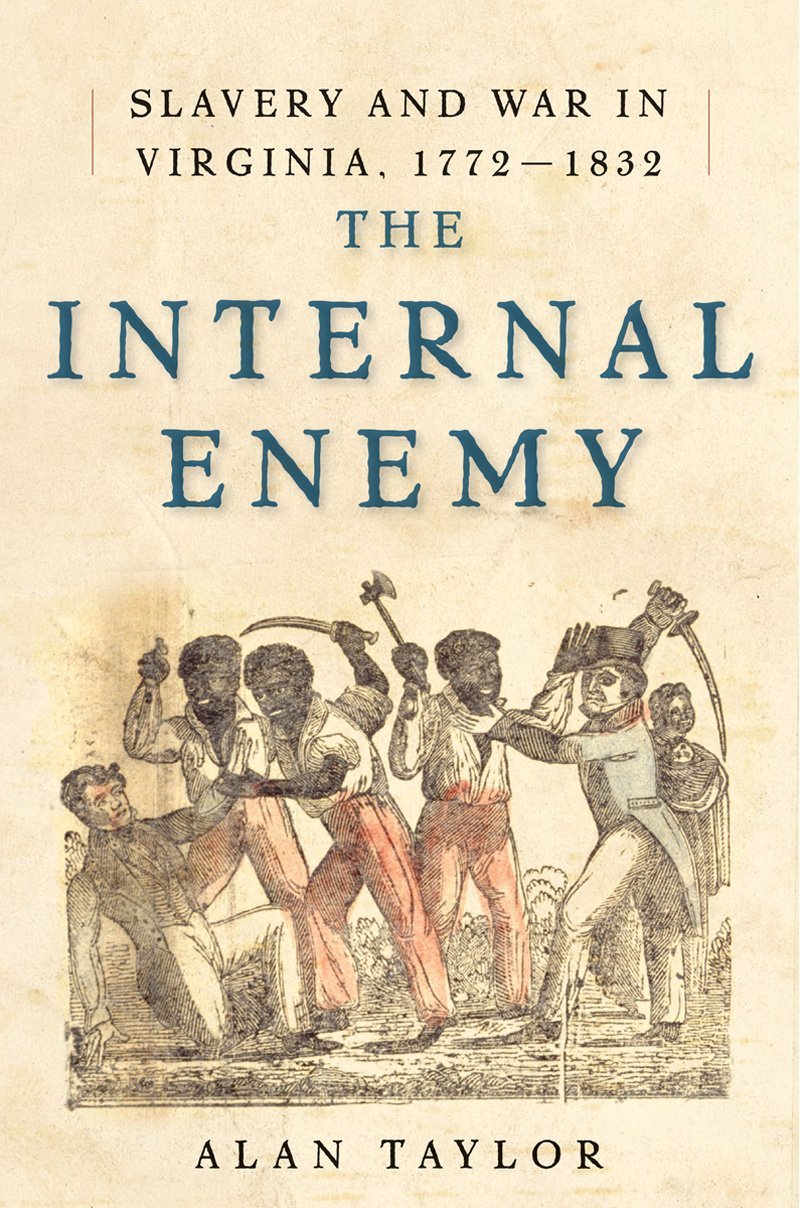 Nice to have the first full week of school behind me. I’ve got some wonderful students this year, who are respectful, funny, and incredibly curious. I am particularly enjoying my course on the Holocaust. This week we discussed whether the Nazis had achieved gleichschaltung by 1934. We also examined testimony from the Nuremberg Trials to help set the stage for our exploration of the perpetrators of the Holocaust.
Nice to have the first full week of school behind me. I’ve got some wonderful students this year, who are respectful, funny, and incredibly curious. I am particularly enjoying my course on the Holocaust. This week we discussed whether the Nazis had achieved gleichschaltung by 1934. We also examined testimony from the Nuremberg Trials to help set the stage for our exploration of the perpetrators of the Holocaust.
It goes without saying that my personal reading time is at a minimum now, though I can always make room for a new book by Alan Taylor.
Ginette Aley and J.L. Anderson eds., Union Heartland: The Midwestern Home Front during the Civil War (Southern Illinois University Press, 2013).
Bradley S. Keefer, Conflicting Memories on the River of Death: The Chickamauga Battlefield and the Spanish-American War, 1863-1933
Edward T. Linenthal, Preserving Memory: The Struggle to Create America’s Holocaust Museum (Columbia University Press, 1995).
Alan Taylor, The Internal Enemy: Slavery and War in Virginia, 1772-1832 (Norton, 2013).
Brenda Wineapple, Ecstatic Nation: Confidence, Crisis, and Compromise, 1848-1877 (Harper, 2013).
If you haven’t already added it to your library, I would recommend “A Small Town Near Auschwitz: Ordinary Nazis and the Holocaust” by Mary Fulbrook (Oxford, 2012) in the strongest terms. It focuses on one place in Poland, Bedzin/Bendsburg, in the Warthegau. Intimate and intense, it demonstrates how powerful the skills of a trained historian can be in uncovering the truth of a contested era, and about a specific individual, in this case one Udo Klausa, Landrat of the town, and his wife Alexandra. Klausa’s spouse was the author’s godmother.
Thanks, Mike. I will definitely put that on my reading list for next year.
I’ve long wondered about the truth of the history of slave revolts because they always tell the same story: Blacks plan a revolt but at the last minute, one of the slaves themselves betrays the plot; the revolt goes forward and ends in defeat with more Blacks killed than Whites. To me, it always reads like, “Black people can’t even trust each other; and in a fight, Whites will always win.”
While this narrative may be the real truth in the revolts of Gabriel Prosser, Denmark Vesey and Nat Turner, I’ve just wondered if the “history” is really what happened, or is it just “his story,” as my cousin once asked me.
I find it much more interesting that regardless of the number of actual insurrections, slave revolts and other threats occupied a central place in the imaginations of slaveowners and whites generally.
Kevin,
Thanks for the reply but I wasn’t asking about “the number of actual insurrections, slave revolts and other threats.” I’ve just wondered for a long time if the common historical narrative of these incidents is what actually happened. But of course, since the Black people who were involved in these events left no significant accounts of their side of the story (and many of them were executed so they could never tell their story anyway) I don’t think we’ll ever know what really happened.
Subordinated peoples planning revolts often suffered from this problem. To be successful, people had to be informed of the plot, but it only took one informer to defeat the element of suprise. Later rebels during the 20th Century developed foco and guerrilla prolongada as replacements for the uprising which depended unrealistically on subject peoples maintaining perfect secrecy while under constant surveilance for success.
Ginette Aley was an instructor for one of my classes on the US Constitution. I found her to be a very good professor and a historian devoted to the craft. I’ll have to pick up that book. Alan Taylor is of course a must read.
I too have Aley and Anderson’s book. It is a useful collection of essays on a sadly neglected topic.
I’ve had a chance to leaf through a couple of the essays. Definitely an area of the war that I know very little about. Looking forward to going through it more thoroughly.
It signifies that the excellent research made into the South during the War of the Rebellion is finally reaching into the North. Nicole Etcheson’s The Emerging Midwest and especially A Generation at War are huge steps forward, but as she wrote in the latter, the northern literature is excellent but focuses too much on cities (Bernstein on NYC, Gallman on Philadelphia, Karaminski on Chicago, etc). Schwalm’s Emancipation Diaspora helps a great deal. If anyone needs a research topic, look to the northern states – take your pick of places to study.
I still need to read Etcheson’s book.
Kevin,
I’ve debated on whether or not to pick up Wineapple’s book. It looks interesting at it received a good review in the New York Times, but I’m questioning whether I need another general history of the time. What are your impressions of the book?
Best
Rob
Can’t say anything at this point. Most of the books I receive are complimentary from the publisher.
Taylor’s book William Cooper’s Town is one of my favorites on the Federalist and Jeffersonian period. American Colonies and Divided Ground are also very good.
William Cooper’s Town is also my favorite.